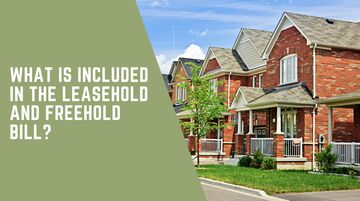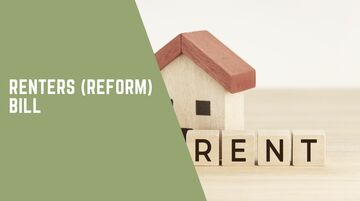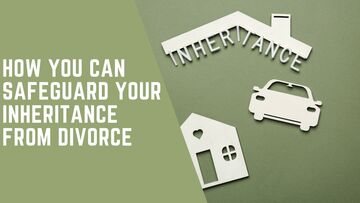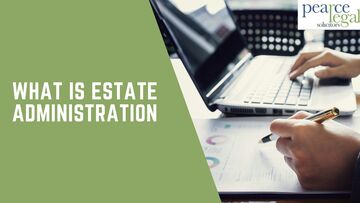What are the Leasehold and Freehold Reform Bill and the Renters (Reform) Bill?
Property| 07.02.2024
On 7th November 2023, King Charles III set out the government’s priorities for the coming parliamentary session, which included the Leasehold and Freehold Bill and the Renters (Reform) Bill.
The Leasehold and Freehold Bill focuses on leasehold reforms to improve the rights of existing leaseholders, including making it easier to extend their lease or acquire their freehold. The King’s Speech also referenced the Renters (Reform) Bill, which includes a wide range of legislative measures to give renters and landlords greater legal certainty. As we will explain in this article, bothBills are expected to bring about several rule changes for landlords and tenants in 2024 and beyond.
What is the Leasehold and Freehold Bill?
The Leasehold and Freehold Bill introduces leasehold reforms designed to boost fairness within the UK’s leasehold market. The Bill is a further legislative effort to overhaul property law in England and Wales and follows the Leasehold Reform (Ground Rent) Act 2022, which ended ground rents for new, qualifying long residential leaseholds.

What is included in the Leasehold and Freehold Bill?
The Leasehold and Freehold Bill aims to empower those with an existing leasehold in England and Wales by:
• Making it cheaper and easier for current homeowners in houses and flats to extend their lease or acquire their freehold.
• Extending the standard lease duration from 90 years to 990 years for houses and apartments while reducing ground rent to a ‘peppercorn’ (i.e. a nominal amount).
• Eliminating the prerequisite for new homeowners to have owned their property for two years before extending their lease or purchasing their freehold and
• Raising the 25% ‘non-residential’ limit that restricts leaseholders in mixed-use buildings (e.g., homes, shops, offices) from acquiring their freehold or assuming management responsibilities. This will allow leaseholders in buildings with up to 50% non-residential floor space to acquire their freehold or assume management control.
The Leasehold and Freehold Bill will also improve the consumer rights of leaseholders in England and Wales by:
• Requiring greater transparency regarding service charges for leaseholders, ensuring regular provision of key financial and non-financial information. This includes the introduction of a standardised service charge demand form and an annual report, empowering leaseholders to scrutinise and contest costs deemed unreasonable.
• Replacing commissions on building insurance for managing agents, landlords, and freeholders with clear administration fees to enhance transparency.
• Abolishing the assumption that leaseholders are responsible for covering their landlords’ legal expenses when contesting improper practices and
• Granting freehold homeowners on private and mixed tenure estates the same rights of redress as leaseholders.

Renters (Reform) Bill
In addition to the Leasehold and Freehold Reform Bill, the King’s Speech also mentioned a Renters (Reform) Bill. According to the Department for Levelling Up, Housing and Communities, the Renters (Reform) Bill will provide “a better deal for renters”. The proposed changes include:
• Abolishing section 21 ‘no fault’ evictions
• Making all assured tenancies periodic. The government believes that this will provide more security for tenants and empower them to challenge poor practices and unfair rent increases without fear of eviction.
• Reform possession grounds so that a) landlords can recover their property (e.g. sell their property or move in close family) and b) it is easier for landlords to repossess their properties if their tenants are at fault (e.g. anti-social behaviour and repeat rent arrears).
• Introducing a new Ombudsman for private landlords with mandatory membership for landlords. The new scheme will be fair and impartial, provide a binding resolution to many issues, and be cheaper and less adversarial than the court system.
• Introducing a new ‘Property Portal’, which includes a database of residential landlords and privately rented properties in England. The aim of this portal is to make it easier for landlords to:
o Understand their legal obligations and demonstrate compliance
o Provide better information to tenants, enabling them to make informed decisions when entering into a tenancy agreement and
o Assist in targeting councils’ enforcement activity where it is most needed.
• Providing enhanced protection against ‘backdoor evictions’. This will be achieved by ensuring tenants are able to appeal against above-market rents intended to price them out of the property. The details of the Bill do state, however, that landlords will still be able to increase rents to market price for their properties.
• Give tenants the right to request a pet in their property, which the landlord must consider and cannot unreasonably refuse. In addition, the Renters (Reform) Bill aims to amend the Tenant Fees Act 2019 so that landlords can require pet insurance to cover any damage to their rental property.
Final words
There is no doubt that the proposed Bills, which are now working their way through the Committee Stage, will have a substantial impact on the property sector in England and Wales. With so many changes, if they come into force, landlords and tenants will need to understand their new rights and how to apply them. If you need any details or advice on the proposed new changes and how you may be affected, speak to a property law Solicitor who will be able to help you.
Pearcelegal has a dedicated team of property law Solicitors who can advise you on your rental or lease agreement or any other legal matters relating to property law. To make an appointment, please contact us on 0121 270 2700 or enquire through our contact form.
Expert advice for you Book a free consultation
The team at Pearcelegal will be delighted to discuss your legal matters and give you a no-obligation quote.



